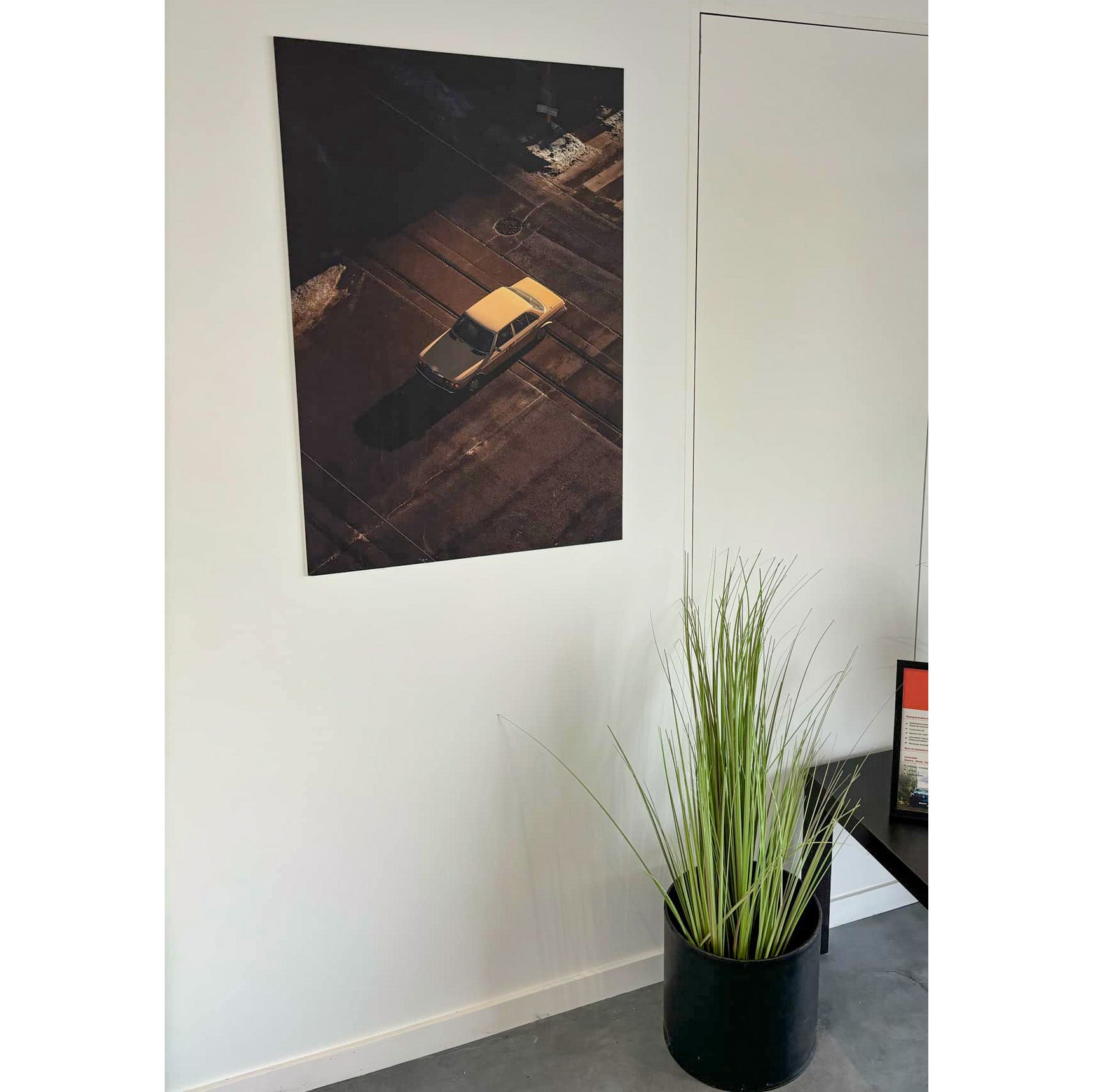Art print | Daikoku and Ebisu, two of the seven gods of happiness - Utagawa Kuniyoshi


View from behind

Frame (optional)
In the fascinating world of Japanese art, some works transcend time and space, embodying deep cultural and spiritual values. The art print of Daikoku and Ebisu, two of the seven gods of happiness - Utagawa Kuniyoshi, is one of these iconic pieces. This piece invites us to immerse ourselves in a world where joy, prosperity, and luck blend harmoniously. Daikoku, the god of wealth, and Ebisu, the god of fishing and merchants, are depicted in a vibrant scene, where their radiant presence evokes an atmosphere of happiness and abundance. By exploring this work, we discover not only mythological characters but also a reflection of Japanese culture and its beliefs.
Style and uniqueness of the work
Kuniyoshi's work stands out for its bold and innovative style, characteristic of ukiyo-e aesthetics, which means "images of the floating world." In this art print, vivid colors and dynamic lines bring the figures of Daikoku and Ebisu to life. The meticulous details, such as the facial expressions of the gods and the patterns of their clothing, demonstrate exceptional craftsmanship. Kuniyoshi, known for his ability to fuse realism and imagination, manages to capture the very essence of these deities, making them accessible and close to the viewer. The piece also distinguishes itself through its use of perspective and composition, creating a visual dynamism that draws the eye and stimulates the imagination. Every element of this scene is carefully thought out, contributing to a harmonious whole that resonates with profound meaning.
The artist and his influence
Utagawa Kuniyoshi, born in 1798, is one of the most influential artists of the ukiyo-e movement. His career, spanning several decades, is marked by a constant commitment to pushing the boundaries of traditional Japanese art. Kuniyoshi drew inspiration from legends, popular tales, and mythology to create works that tell captivating stories. His innovative approach paved the way for many artists.

Matte finish

View from behind

Frame (optional)
In the fascinating world of Japanese art, some works transcend time and space, embodying deep cultural and spiritual values. The art print of Daikoku and Ebisu, two of the seven gods of happiness - Utagawa Kuniyoshi, is one of these iconic pieces. This piece invites us to immerse ourselves in a world where joy, prosperity, and luck blend harmoniously. Daikoku, the god of wealth, and Ebisu, the god of fishing and merchants, are depicted in a vibrant scene, where their radiant presence evokes an atmosphere of happiness and abundance. By exploring this work, we discover not only mythological characters but also a reflection of Japanese culture and its beliefs.
Style and uniqueness of the work
Kuniyoshi's work stands out for its bold and innovative style, characteristic of ukiyo-e aesthetics, which means "images of the floating world." In this art print, vivid colors and dynamic lines bring the figures of Daikoku and Ebisu to life. The meticulous details, such as the facial expressions of the gods and the patterns of their clothing, demonstrate exceptional craftsmanship. Kuniyoshi, known for his ability to fuse realism and imagination, manages to capture the very essence of these deities, making them accessible and close to the viewer. The piece also distinguishes itself through its use of perspective and composition, creating a visual dynamism that draws the eye and stimulates the imagination. Every element of this scene is carefully thought out, contributing to a harmonious whole that resonates with profound meaning.
The artist and his influence
Utagawa Kuniyoshi, born in 1798, is one of the most influential artists of the ukiyo-e movement. His career, spanning several decades, is marked by a constant commitment to pushing the boundaries of traditional Japanese art. Kuniyoshi drew inspiration from legends, popular tales, and mythology to create works that tell captivating stories. His innovative approach paved the way for many artists.









